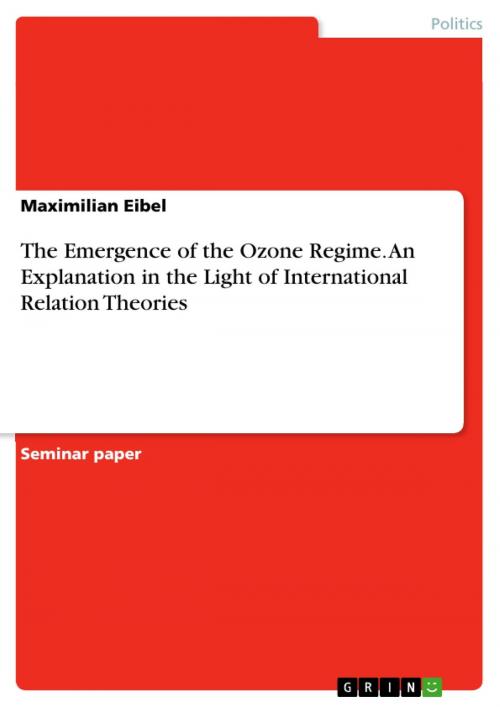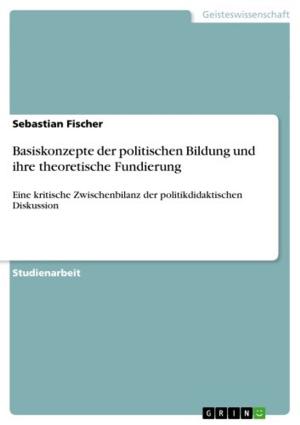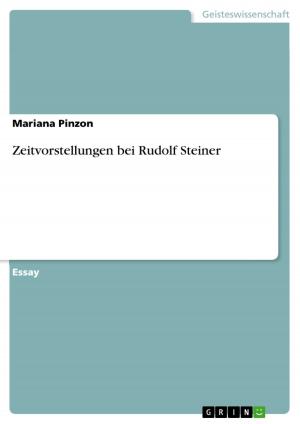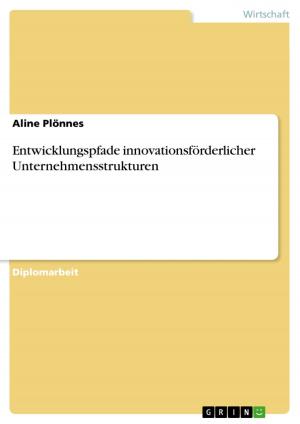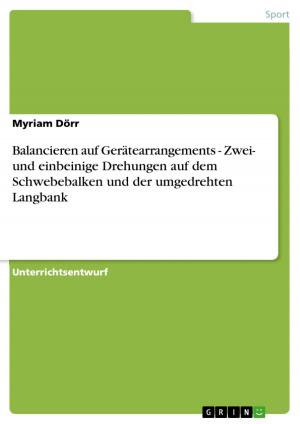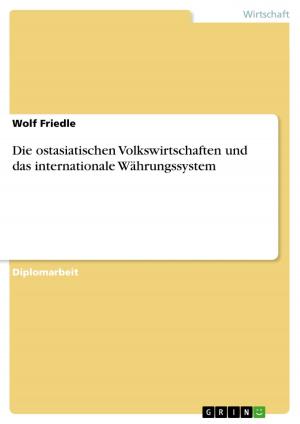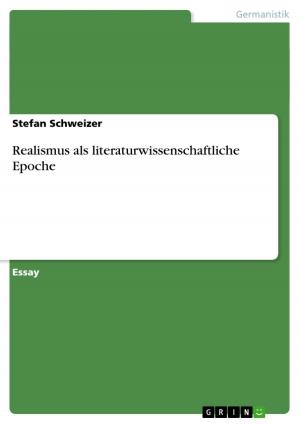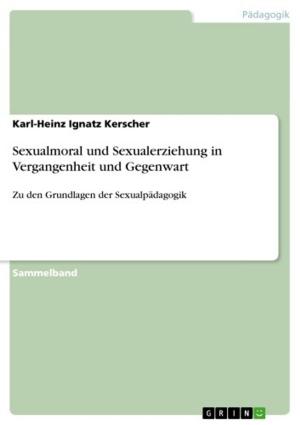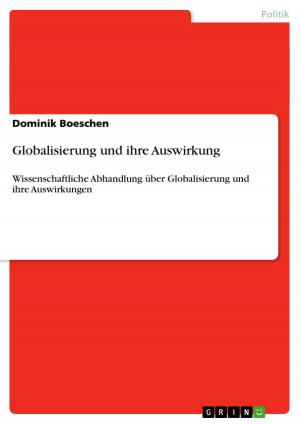The Emergence of the Ozone Regime. An Explanation in the Light of International Relation Theories
Nonfiction, Science & Nature, Science, Biological Sciences, Environmental Science| Author: | Maximilian Eibel | ISBN: | 9783656944676 |
| Publisher: | GRIN Verlag | Publication: | April 17, 2015 |
| Imprint: | GRIN Verlag | Language: | English |
| Author: | Maximilian Eibel |
| ISBN: | 9783656944676 |
| Publisher: | GRIN Verlag |
| Publication: | April 17, 2015 |
| Imprint: | GRIN Verlag |
| Language: | English |
Seminar paper from the year 2012 in the subject Politics - International Politics - Environmental Policy, grade: 1,3, Ewha Womans University, language: English, abstract: This paper analyses why all of the major ODC-producing countries, as well as several developing countries dependent on ODCs for domestic development, 'decided to sign the treaty after many had opposed a regulatory ozone treaty for over a decade'. Because the United States (US) and the member states of the European Community (EC) had seemingly irreconcilable differences at the beginning of the negotiations, I will focus on these two major actors. While acknowledging that Japan and the former Soviet Union played also a crucial role. This paper tries to explain the emergence of the ozone regime by using the neoliberalism and neorealism theory of international relations. The key variable for explaining the emergence of the ozone regime is interest in neoliberal terms and power in the neorealist school. Due to the fact that three schools of thought have shaped the discussion of regimes, I will also examine the constructivist approach to explain the ozone regime formation, because the other approaches neglect the influence of causal and social knowledge for the decision making of actors.
Seminar paper from the year 2012 in the subject Politics - International Politics - Environmental Policy, grade: 1,3, Ewha Womans University, language: English, abstract: This paper analyses why all of the major ODC-producing countries, as well as several developing countries dependent on ODCs for domestic development, 'decided to sign the treaty after many had opposed a regulatory ozone treaty for over a decade'. Because the United States (US) and the member states of the European Community (EC) had seemingly irreconcilable differences at the beginning of the negotiations, I will focus on these two major actors. While acknowledging that Japan and the former Soviet Union played also a crucial role. This paper tries to explain the emergence of the ozone regime by using the neoliberalism and neorealism theory of international relations. The key variable for explaining the emergence of the ozone regime is interest in neoliberal terms and power in the neorealist school. Due to the fact that three schools of thought have shaped the discussion of regimes, I will also examine the constructivist approach to explain the ozone regime formation, because the other approaches neglect the influence of causal and social knowledge for the decision making of actors.
